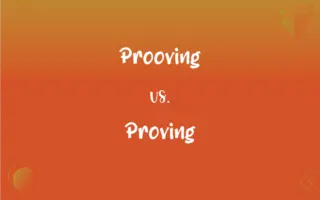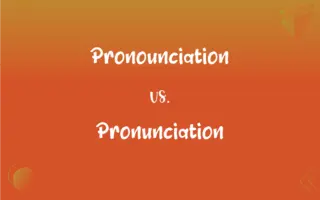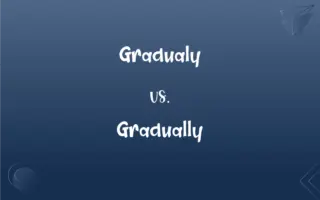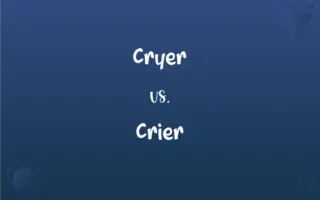Cencor vs. Censor: Mastering the Correct Spelling
Edited by Aimie Carlson || By Janet White || Updated on March 12, 2024
The incorrect spelling is "Cencor," while the correct spelling is "Censor." A censor is someone who examines and removes unacceptable content.

Which is correct: Cencor or Censor
How to spell Censor?

Cencor is Incorrect

Censor is Correct
ADVERTISEMENT
Key Differences
Note that "Censor" has a similar spelling to "Censure," both of which involve judgment or reprimanding.
Think of "Censor" as being related to "sensor," both deal with detecting or filtering information.
The word "Censor" has "sen" which also starts the word "sensible," a characteristic you'd expect from someone filtering content.
Remember that "Censor" starts with the letters found in "sensory," indicating it deals with perception and judgment.
"Cencor" might remind you of "cent," but this word has nothing to do with money or cents.
ADVERTISEMENT
Correct usage of Censor
The government decided to cencor certain parts of the documentary.
The government decided to censor certain parts of the documentary.
They called for a cencor of the book due to its controversial themes.
They called for a censor of the book due to its controversial themes.
Censor Definitions
A censor is an individual or entity responsible for reviewing and potentially removing or suppressing content deemed inappropriate.
The censor removed the offensive scenes from the film.
Censor means a person who exercises control over creative works, usually by governmental power.
The government censor decided to ban the controversial book.
In psychology, a censor refers to the hypothetical mental faculty that suppresses unconscious thoughts.
Freud believed the censor kept certain thoughts from reaching conscious awareness.
Censor refers to an official who monitors and restricts information or material.
As a censor, her job was to read outgoing mail from the prison.
A person authorized to examine books, films, or other material and to remove or suppress what is considered morally, politically, or otherwise objectionable.
An official, as in the armed forces, who examines personal mail and official dispatches to remove information considered secret or a risk to security.
One that condemns or censures.
One of two officials in ancient Rome responsible for taking the public census and supervising public behavior and morals.
(Psychology) The component of the unconscious that is posited by psychoanalytic theory to be responsible for preventing certain thoughts or feelings from reaching the conscious mind.
To examine and expurgate.
One of the two magistrates who originally administered the census of citizens, and by Classical times (between the 8th century {{B.C.E.}} and the 6th century {{C.E.}}) was a high judge of public behaviour and morality.
The Ancient Roman censors were part of the cursus honorum, a series of public offices held during a political career, like consuls and praetors.
A high-ranking official who was responsible for the supervision of subordinate government officials.
An official responsible for the removal or suppression of objectionable material (for example, if obscene or likely to incite violence) or sensitive content in books, films, correspondence, and other media.
The headmaster was an even stricter censor of his boarding pupils’ correspondence than the enemy censors had been of his own when the country was occupied.
(education) A college or university official whose duties vary depending on the institution.
(obsolete) One who censures or condemns.
(psychology) A hypothetical subconscious agency which filters unacceptable thought before it reaches the conscious mind.
(transitive) To review for, and if necessary to remove or suppress, content from books, films, correspondence, and other media which is regarded as objectionable (for example, obscene, likely to incite violence, or sensitive).
The people responsible for censoring films have seen some startling things in their time.
Occupying powers typically censor anything reeking of resistance
One of two magistrates of Rome who took a register of the number and property of citizens, and who also exercised the office of inspector of morals and conduct.
One who is empowered to examine manuscripts before they are committed to the press, and to forbid their publication if they contain anything obnoxious; - an official in some European countries.
One given to fault-finding; a censurer.
Nor can the most circumspect attention, or steady rectitude, escape blame from censors who have no inclination to approve.
A critic; a reviewer.
Received with caution by the censors of the press.
A person who is authorized to read publications or correspondence or to watch theatrical performances and suppress in whole or in part anything considered obscene or politically unacceptable
Forbid the public distribution of ( a movie or a newspaper)
Subject to political, religious, or moral censorship;
This magazine is censored by the government
Censor is a term used for a software or algorithm that filters and blocks specific content online.
The website’s censor automatically flags hate speech.
Censor Sentences
The censor removed all the offensive language from the script.
Parents sometimes censor what their children watch on TV.
Governments often censor information during times of war.
The internet has made it harder for regimes to censor information.
She criticized the school's decision to censor certain books.
FAQs
Why is it called Censor?
It is called "Censor" from the Latin "censere," meaning "to assess, judge, or value."
What is the singular form of Censor?
The singular form is "Censor."
Which vowel is used before Censor?
The vowel "e" is used before Censor.
What is the verb form of Censor?
The verb form is "to censor."
Is Censor an adverb?
No, Censor is not an adverb.
Is Censor a negative or positive word?
It is generally considered a neutral word, though it can have negative connotations depending on context.
What is the pronunciation of Censor?
It is pronounced as "SEN-sor."
What is the root word of Censor?
The root word is Latin "censere."
Is Censor an abstract noun?
Yes, it is considered an abstract noun.
What is the plural form of Censor?
The plural form is "Censors."
Which conjunction is used with Censor?
The conjunction "and" is often used with Censor.
Is Censor a vowel or consonant?
Censor starts with a consonant.
Is Censor a collective noun?
No, it is not a collective noun.
Is the Censor term a metaphor?
No, it is not a metaphor, though it can be used metaphorically.
Is Censor a countable noun?
Yes, it is a countable noun.
What part of speech is Censor?
Censor is a noun and can also be a verb.
What is another term for Censor?
Another term could be "gatekeeper."
What is the first form of Censor?
The first form is "Censor" as a noun or "to censor" as a verb.
What is the third form of Censor?
The third form as a verb is also "censored."
Which preposition is used with Censor?
The preposition "by" is often used with Censor (e.g., censored by).
Which article is used with Censor?
The article "the" is commonly used with Censor.
Is the word Censor imperative?
No, it is not imperative.
Is Censor a noun or adjective?
Censor is primarily a noun.
How many syllables are in Censor?
There are two syllables in Censor.
What is the opposite of Censor?
The opposite could be "to allow" or "permit."
What is a stressed syllable in Censor?
The first syllable "Cen-" is stressed.
What is the second form of Censor?
The second form as a verb is "censored."
How do we divide Censor into syllables?
It is divided as "Cen-sor."
Which determiner is used with Censor?
The determiners "a," "an," and "the" can be used with Censor.
How is Censor used in a sentence?
Example: The committee will censor any content that violates their guidelines.
About Author
Written by
Janet WhiteJanet White has been an esteemed writer and blogger for Difference Wiki. Holding a Master's degree in Science and Medical Journalism from the prestigious Boston University, she has consistently demonstrated her expertise and passion for her field. When she's not immersed in her work, Janet relishes her time exercising, delving into a good book, and cherishing moments with friends and family.
Edited by
Aimie CarlsonAimie Carlson, holding a master's degree in English literature, is a fervent English language enthusiast. She lends her writing talents to Difference Wiki, a prominent website that specializes in comparisons, offering readers insightful analyses that both captivate and inform.


































































